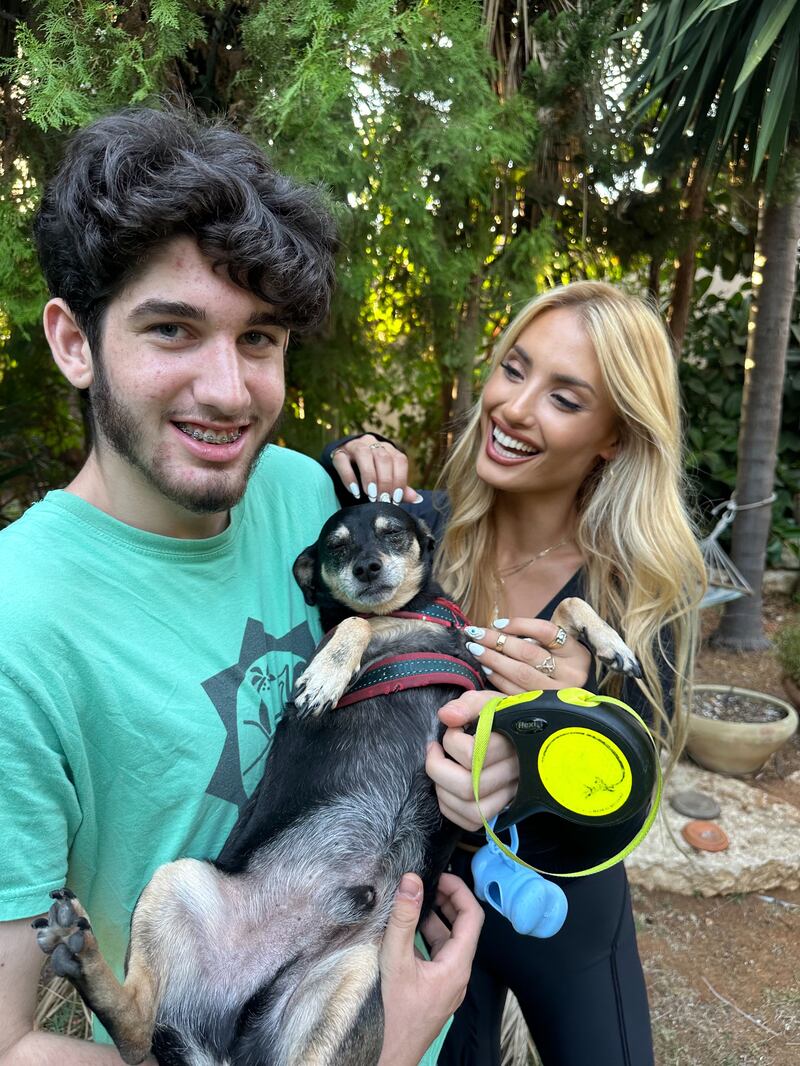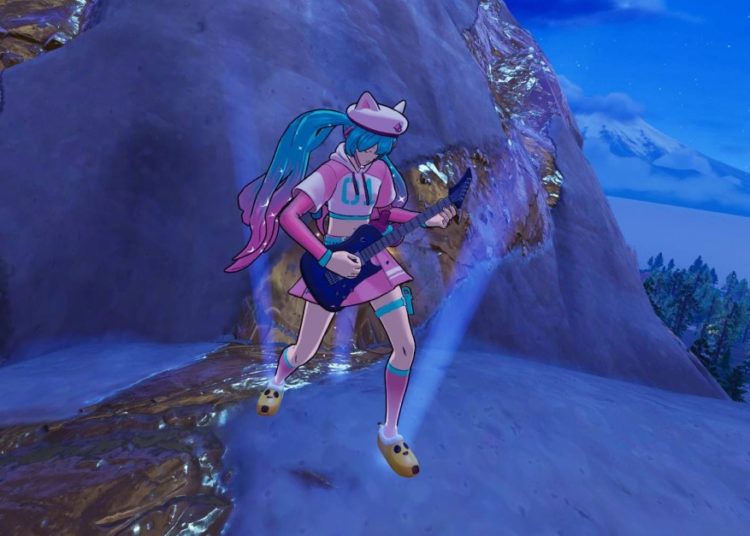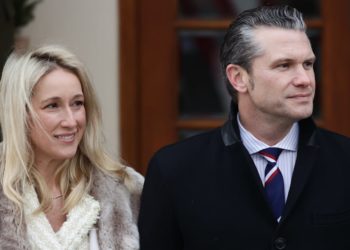A year and a half ago, they were children.
Chronologically, they still are. Realistically, their childhoods ended 18 months ago, when terrorists slaughtered their families and laid waste to their homes.
The kids tell their stories in The Children of October 7, premiering on April 23, Holocaust Remembrance Day, on Paramount+ and airing the following day on MTV.
“On October 7, 2023, the Hamas terrorist organization launched a deadly attack on Israel,” the film begins. “Thousands of rockets were fired, and thousands of terrorists invaded peaceful communities on the southern border. On the day of the attack, 1,200 people were murdered, and 251 were kidnapped to Gaza.”
The 35-minute documentary, which includes footage of the attacks juxtaposed with personal photos showing families in happier times, is harrowing enough that it issues a trigger warning. Yet it opens with the most joyful sound, a baby laughing.
The red-headed infant, giggling with that whole-body laugh of babies, was Kfir, who became the most famous of Hamas’ victims. When his battered body was returned to Israel, people around the world wore orange in remembrance.
But most of us don’t know about the other children. Their lives were shattered, yet they survived. In the documentary, they recount their stories with more poise than most adults could muster if they talked about taking refuge under their parents’ bodies or being hauled away by armed strangers.
“A lot of them hadn’t shared their stories or their testimonies before, and they were wanting to share them with me,” Montana Tucker, who presents the film, tells The Daily Beast’s Obsessed. “I was just so grateful, and I knew that it was going to be really difficult, but I knew that it was going to be the absolute most important and necessary thing I could ever do.”
Yael Idan was 11, living on a kibbutz, when terrorists stormed her home.
“If you are here and open the door, I will not shoot,” a man screamed. “I will not shoot.” Yael hid under her bed with her sister, Maayan. “I love you,” Yael told Maayan. Then bullets pierced the door and fatally struck her sister in the neck.
When the family ventured out, terrorists seized her mom’s phone and streamed the rest of the attack over Facebook. Her father, Tsachi Idan, was murdered; his remains were returned to Israel 510 days after he was kidnapped.
This little girl with glasses asked the terrorists why they were doing this, and they told her to shut up.
“It’s like everything that feels safe for you wasn’t safe anymore,” Yael says onscreen to Tucker.
A psychologist was on set while the kids spoke to Tucker. She intently listens to the survivors. When children break down, she comforts them.
They trust Tucker, who has a massive online presence, particularly among young people. An actor, dancer, singer, and social media activist, Tucker’s TikTok, Instagram, YouTube, and Facebook accounts have around 14 million followers.
Tucker wasn’t paid for this project. Her grandparents are Holocaust survivors, and as a proud Jew and loyal supporter of Israel, she’s doing what she can to remind the world that hostages are still being held. As of deadline, 59 hostages were still being held.
“I don’t know if it’s like generational trauma, but truly, when I heard the news and started seeing all the footage, something just completely took over me, and I felt like I couldn’t function,” Tucker recalls of watching the attack unfold. “I didn’t leave my apartment in Los Angeles for a week. I was helpless. I felt like, ‘How can I enjoy my beautiful view? How can I go out about with my life while this is going on there?’ And this is really before all the crazy propaganda was really happening.”
She turned to social media to continue raising awareness about what was happening.
Her connections made her the natural choice when Etyan Schwartz, a producer, was searching for the film’s presenter. Reared in Manhattan until his family moved to Tel Aviv when he was 7, Schwartz returned to New York to study at Columbia University. Twenty years ago, he shot to fame, winning an Israeli reality show, The Ambassador. The show’s purpose was to improve Israel’s public relations.
“Everybody in Israel is obsessed with Israel’s image,” he says. “We always feel we’re being given a bad deal, and nobody understands us.”
Schwartz worked in government and for the rights of Darfur refugees. Now, he’s concentrating on the attack, its victims, and the fallout. Since the attack, he has taken reporters to the sites of the massacres.
“Granted, Israel attracts more attention than its actual size or importance or volume or level of economic or political activity,” Schwartz says. “There’s antisemitism, and there’s anti-Israel, and there’s the Muslim world. All of those things play into this situation where a small country the size of New Jersey gets more global attention than any other nation of its size, and probably more than most nations in the world.”
Schwartz is still trying to correct what he says are misimpressions about the country.
The anti-Israel protests that began the day after the massacre have grown in size and intensity, he notes, on campuses and social media. “In both cases, it has to do with younger people, so therefore, they’re linked,” Schwartz says. He plans to continue documenting Oct. 7, the greatest single-day loss of Jewish lives since the Holocaust.
Schwartz knows how powerful films can be.
“When Steven Spielberg came out with Schindler’s List, he did a screening in Israel with the survivors of the list who were living in Israel at the time,” Schwartz says. “And I remember this moment, sitting there in the theater and hearing him speak, listening to this man who had leveraged everything he had to tell this story, and realizing that there are moments in life when you have to do something, and use everything you have for a greater purpose. I knew from the start of October seventh what I had to do.”
As did Tucker. At 32, she’s like a trusted older cousin with these tweens and teens. Tucker inherently understands the importance of bearing witness. Her empathy is palpable.
“They have such a special place in my heart,” Tucker says. “And so that’s why I think the interviews came out the way that they did, because it doesn’t feel like your typical interview. It almost felt more like a therapy session you’ve been invited to, and I think that’s why a lot of people are going to relate.”
Younger audiences will find even deeper connections to these stories, Tucker hopes.
“I really believe younger viewers are going to relate to this, maybe in a different way than they have from any content that has come out since October 7,” Tucker says.
As mature as these young survivors are, sadness shrouds them. How can it not? Rotem Mathias was 16 during the attack. Both of his parents were slain in front of him, and he stayed under their bodies, playing dead. Montana asked why he stayed.
Rotem’s voice cracking, he says, “It’s good for hiding.”
“My parents saved me,” he says to Tucker. “They gave me, literally, a second chance at life. And to me, it would be disrespectful if I just wasted it. I would have definitely died if it wasn’t for her and my dad.”

The film does not bother with politics, geography, protests, demands, or sides. It doesn’t wade into the decades of conflict that preceded the attack, or the ongoing war that followed. It simply focuses on these children, going about their regular lives on an autumn day, when their worlds forever changed.
One little girl, Yael Yahalomi, then 10, was at home on a kibbutz with her family when a terrorist lobbed a grenade into their home. The family was kidnapped. Crying, terrified, Yael still greeted the attackers.
“I waved hello to the terrorists because I thought I’m going to live in Gaza for good,” she says. “And I wanted us to be nice to one another.”
Yael, her mom, and her baby sister were thrown off a motorcycle. They escaped, running barefoot for four hours, but had to stop for the baby’s nap.
“We didn’t hide,” Yael says. “We pretended to be dead.”
There’s no sugarcoating this–and why should there be? It’s a tough watch. Smartly, it’s contained and moves fast. Still, placing this on a major streamer was a long shot.
“It’s easier not to air this than risk having people call up the call center or send emails or post on social media that they don’t want to see this film on their streamer,” Schwartz says. “And we’ve seen this type of quiet and not quiet boycotts of all kinds of content.
“I can understand it’s business,” he adds. “Before business, there are values. And if you oppose a movie about children talking about how sad it is to see their parents being murdered, then we draw the line over there.”
The post Child October 7 Attack Survivors Speak Out in Devastating Doc appeared first on The Daily Beast.




